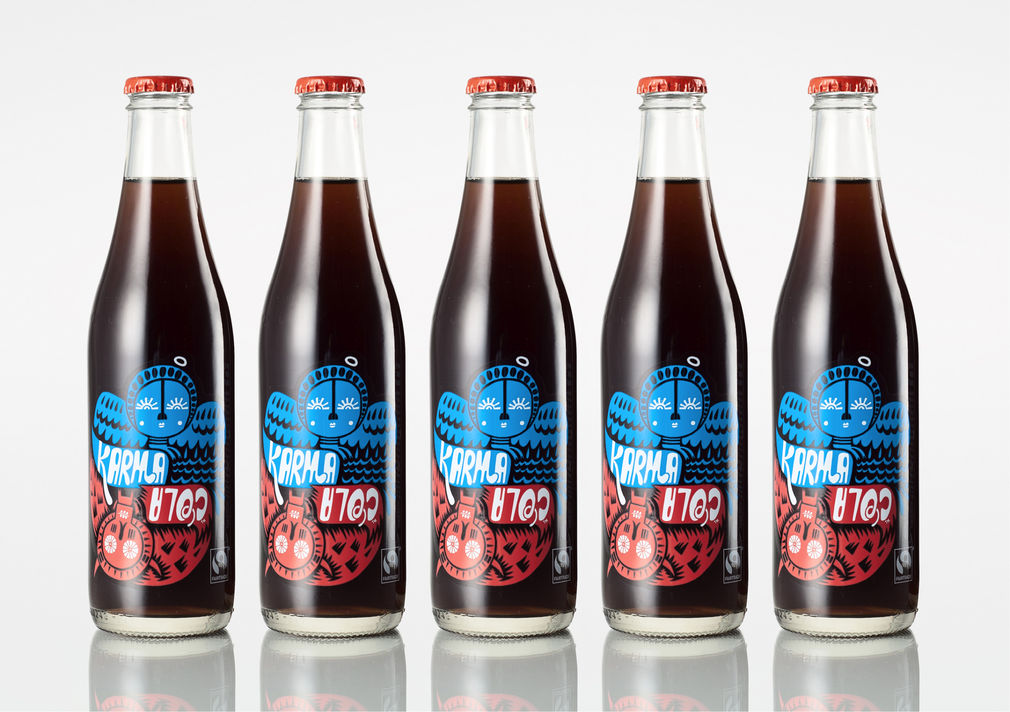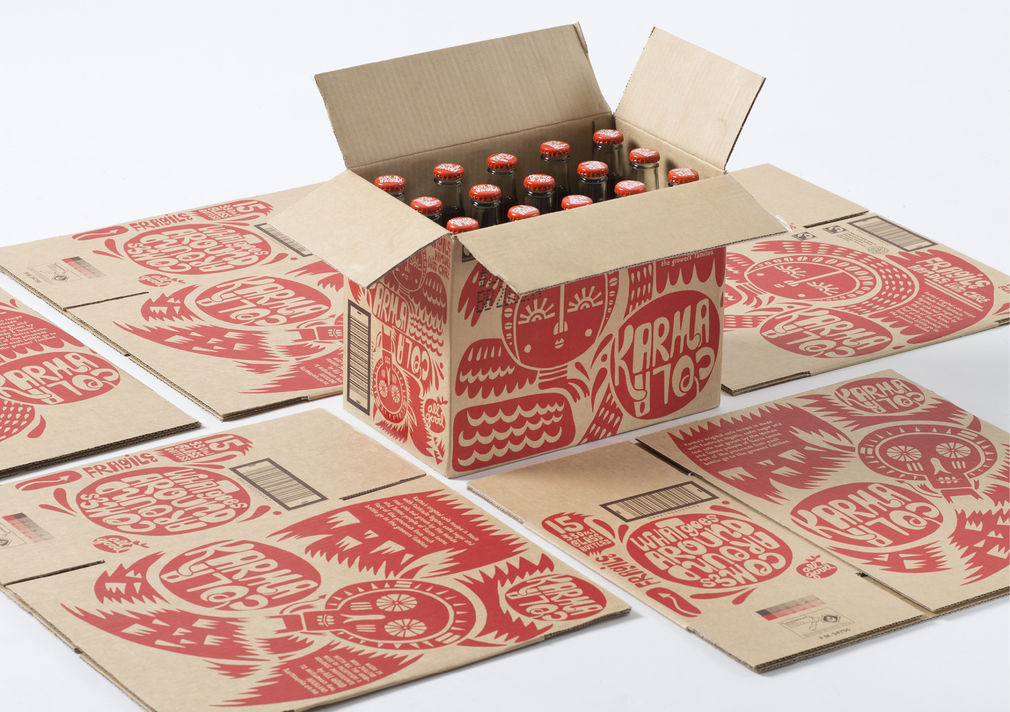In the parts of the world tired of the outputs of mass production and standardisation (and let’s not forget exploitation!), there are small revolutions occurring in product development. These revolutions focus on provenance; constituent parts are obtained fairly, and there is a mutually beneficial focus on cultivating not just sustainable lines of supply but ongoing relationships with primary suppliers.
Purple Pin Case Study — Graphic
Special Group
Karma Cola
Background


This is, naturally, a bit of a set-up for Karma Cola – a beverage that wears its heart on its sleeve and tells its story through a number of mediums, especially online and through its distinctive graphic design elements, for which Special Group was awarded this year’s Purple Pin for Graphic Design.
The theme of the product, developed by All Good Organics, essentially runs like this: “Two years ago we had a crazy dream to offer consumers a fizzy drink that acknowledged and supported the people who originally discovered the name ingredient in the most consumed soft drink in the world – cola.”
Karma Cola is a reinvention of a familiar product; it’s a uniform product subverted with craft, fairness and humour. It’s New Zealand made – from natural spices, lemon, lime and orange oils, vanilla beans grown by the Forest Garden Growers Association in Sri Lanka, as well as organically grown and processed sugar cane from the Suminter Organic Farmers Consortium in Maharashtra India. The key component of any real cola is, however, the real cola nut. All Good gets theirs from Boma village, in Sierra Leone, and it’s a product they found for themselves. They travelled there, organised their own supply network and, in turn, provided cola-nut farmers with an international profile and a market for a crop that traditionally was only locally traded.
The key component of any real cola is, however, the real cola nut.
Some proceeds from each sale of Karma Cola are returned to the growers too, and in a country still recovering from a debilitating civil war, these efforts at helping build community infrastructure and sending kids to school are commendable indeed.
This aspect of the product wasn’t lost on Special Group. Heath Lowe, the creative director on the project, describes the brief succinctly. “All Good believes that if you’re going to drink something that has sugar in it, i.e. ‘bad’, it should at least be organic and Fairtrade, i.e. ‘good’. And they know their audience. They developed a cola whose ingredients come from developing nations — with profits from the sale of each bottle going back — ensuring money returns to communities and encourages growth. We thought that made for good karma and so Karma Cola was born.”
So karma it was. Special worked with artist Beck Wheeler on the bottle’s motif – a livery of red, white and blue that echoes the typical colours of corporate cola players, but accompanied by stories of fairness and sustainability, manages to avoid the aura of ‘coca cola-nisation’ that affects the corporate players. Wheeler’s illustration and typography is applied to individual bottles, three-pack and fifteen-pack boxes, fridges, vans, cars, t-shirts and stickers. The design blends African imagery, in the form of Mami Wata, a two-sided being (akin to an angel and devil rolled up in one), the Eastern idea of karma and the Western idea of ‘cola’. With its fresh style and lighthearted depiction, this brand is a potent design infusion.
—Mike Barrett